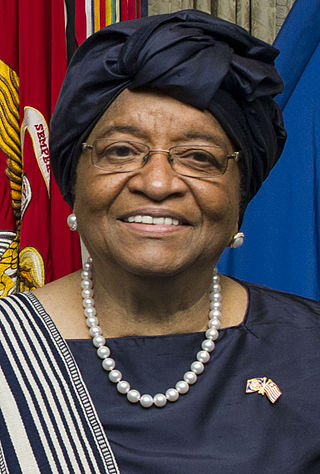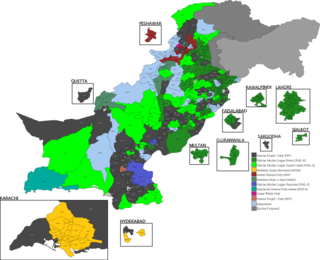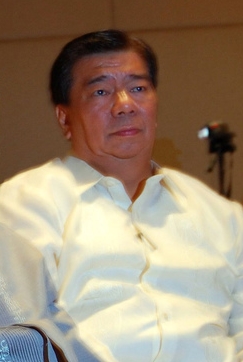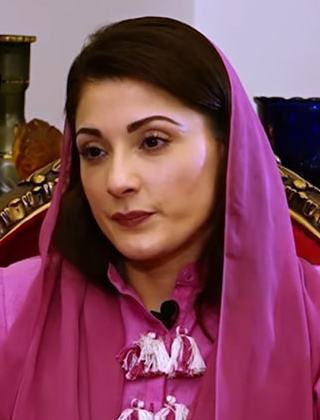| ||||||||||||||||||||||||||||||||||||||||||||||||||||||||||||||||||||||||||||||||||||||||||||||||||||||||||||||||||||
15 of the 30 seats in the Senate 15 seats needed for a majority | ||||||||||||||||||||||||||||||||||||||||||||||||||||||||||||||||||||||||||||||||||||||||||||||||||||||||||||||||||||
|---|---|---|---|---|---|---|---|---|---|---|---|---|---|---|---|---|---|---|---|---|---|---|---|---|---|---|---|---|---|---|---|---|---|---|---|---|---|---|---|---|---|---|---|---|---|---|---|---|---|---|---|---|---|---|---|---|---|---|---|---|---|---|---|---|---|---|---|---|---|---|---|---|---|---|---|---|---|---|---|---|---|---|---|---|---|---|---|---|---|---|---|---|---|---|---|---|---|---|---|---|---|---|---|---|---|---|---|---|---|---|---|---|---|---|---|---|
| ||||||||||||||||||||||||||||||||||||||||||||||||||||||||||||||||||||||||||||||||||||||||||||||||||||||||||||||||||||
 |
|---|
Senate elections were held in Liberia on 20 December 2014, with half the seats in the Senate up for election.
| ||||||||||||||||||||||||||||||||||||||||||||||||||||||||||||||||||||||||||||||||||||||||||||||||||||||||||||||||||||
15 of the 30 seats in the Senate 15 seats needed for a majority | ||||||||||||||||||||||||||||||||||||||||||||||||||||||||||||||||||||||||||||||||||||||||||||||||||||||||||||||||||||
|---|---|---|---|---|---|---|---|---|---|---|---|---|---|---|---|---|---|---|---|---|---|---|---|---|---|---|---|---|---|---|---|---|---|---|---|---|---|---|---|---|---|---|---|---|---|---|---|---|---|---|---|---|---|---|---|---|---|---|---|---|---|---|---|---|---|---|---|---|---|---|---|---|---|---|---|---|---|---|---|---|---|---|---|---|---|---|---|---|---|---|---|---|---|---|---|---|---|---|---|---|---|---|---|---|---|---|---|---|---|---|---|---|---|---|---|---|
| ||||||||||||||||||||||||||||||||||||||||||||||||||||||||||||||||||||||||||||||||||||||||||||||||||||||||||||||||||||
 |
|---|
Senate elections were held in Liberia on 20 December 2014, with half the seats in the Senate up for election.
The elections were originally scheduled to be held on 14 October 2014, as defined by the constitution. [1] However, they were postponed until 16 December due to the Ebola epidemic. Shortly before 16 December, they were postponed again until 20 December. [2]
In early December President Ellen Johnson Sirleaf banned political rallies, claiming that they could cause the Ebola virus to spread. [3]
A total of 139 candidates ran for the 15 seats. Fourteen parties nominated candidates, with 26 people standing as independents. [4] [5] Among the candidates were former footballer George Weah of the Congress for Democratic Change, who won the Montserrado County election and sat in the Senate until his election as president in 2017.
| Party | Votes | % | Seats | |
|---|---|---|---|---|
| Congress for Democratic Change | 135,897 | 29.78 | 2 | |
| Liberty Party | 52,351 | 11.47 | 2 | |
| Unity Party | 47,123 | 10.33 | 4 | |
| National Patriotic Party | 27,602 | 6.05 | 1 | |
| People's Unification Party | 22,528 | 4.94 | 1 | |
| Alternative National Congress | 18,917 | 4.15 | 1 | |
| Alliance for Peace and Democracy | 18,410 | 4.03 | 0 | |
| National Democratic Coalition | 5,726 | 1.25 | 1 | |
| Union of Liberian Democrats | 4,092 | 0.90 | 0 | |
| Liberia Transformation Party | 3,680 | 0.81 | 0 | |
| Grassroot Democratic Party of Liberia | 3,154 | 0.69 | 0 | |
| Movement for Progressive Change | 3,038 | 0.67 | 0 | |
| Liberia National Union | 1,779 | 0.39 | 0 | |
| Victory for Change Party | 1,266 | 0.28 | 0 | |
| Independents | 110,707 | 24.26 | 3 | |
| Total | 456,270 | 100.00 | 15 | |
| Valid votes | 456,270 | 95.07 | ||
| Invalid/blank votes | 23,666 | 4.93 | ||
| Total votes | 479,936 | 100.00 | ||
| Registered voters/turnout | 1,903,229 | 25.22 | ||
| Source: NEC, NEC | ||||
The modern state of Guinea did not come into existence until 1958, but the history of the area stretches back well before European colonization. Its current boundaries were determined during the colonial period by the Berlin Conference (1884–1885) and the French, who ruled Guinea until 1958.
Elections in the Philippines are of several types. The president, vice-president, and the senators are elected for a six-year term, while the members of the House of Representatives, governors, vice-governors, members of the Sangguniang Panlalawigan, mayors, vice-mayors, members of the Sangguniang Panlungsod/members of the Sangguniang Bayan, barangay officials, and the members of the Sangguniang Kabataan are elected to serve for a three-year term.

General elections were held in Liberia on 11 October 2005, with a runoff election for the presidency held on 8 November. The presidency and all seats in the House of Representatives and Senate were up for election. The elections were the first held since 1997 and marked the end of the political transition following the second civil war, having been stipulated in the Accra Comprehensive Peace Agreement of 2004. Ellen Johnson Sirleaf, former World Bank employee and Liberian finance minister, won the presidential contest and became the first democratically elected female African head of state in January 2006.

Ellen Johnson Sirleaf is a Liberian politician who served as the 24th president of Liberia from 2006 to 2018. Sirleaf was the first elected female head of state in Africa.

The Senate is the upper house of the bicameral legislative branch of Liberia, and together with the House of Representatives comprises the Legislature of Liberia. Each of the fifteen counties are equally represented by two senators, elected to serve staggered nine-year terms. The Senate meets at the Capitol Building in Monrovia.

Ernest Bai Koroma is a Sierra Leonean politician who served as the fourth President of Sierra Leone from 17 September 2007 to 4 April 2018.

Constituent Assembly elections were held in Nepal on 10 April 2008, having been postponed from earlier dates of 7 June 2007 and 22 November 2007. The Constituent Assembly was planned to draft a new constitution and therefore decide, amongst other things, on the issue of federalism. The number of eligible voters was around 17.5 million. The Constituent Assembly was originally set to have a term of two years.

General elections were held in Pakistan on 18 February 2008 to elect members of the 13th National Assembly and the four Provincial Assemblies.
An indirect presidential election was held in the Parliament of Lebanon on 25 May 2008, after the term of incumbent President Émile Lahoud expired on 24 November 2007 at midnight. General Michel Sleiman, the Commander of the Lebanese Armed Forces, was elected as the consensus candidate after months of delays in holding the election due to an ongoing political dispute.

A general election was held in the Philippines on May 13, 2013. It was a midterm election—the officials elected will be sworn in on June 30, 2013, midway through President Benigno Aquino III's term of office.
The Antoinette Tubman Stadium is a multi-purpose stadium located in Monrovia, Liberia. It is used mostly for football matches although it has also been used for music concerts, major church events, political rallies and Ebola treatment. It has a capacity of 10,000 spectators and is the oldest stadium in Liberia.
General elections were held in Qatar for the first time on 2 October 2021, following an announcement by the Emir of Qatar on 22 August 2021. The elections for the Consultative Assembly were originally scheduled for the second half of 2013, but were postponed in June 2013 until at least 2016. In 2016 they were postponed again. Finally, in November 2020, Emir Tamim bin Hamad Al Thani pledged to hold the election in October 2021.

A general election in the Philippines took place on May 9, 2016, for executive and legislative branches for all levels of government – national, provincial, and local, except for the barangay officials.

Presidential elections were held in Burundi on 21 July 2015. President Pierre Nkurunziza ran for a third term despite controversy over whether he was eligible to run again. The opposition boycotted the vote, and Nkurunziza won re-election.

General elections were held in the Democratic Republic of the Congo on 30 December 2018, to determine a successor to President Joseph Kabila, as well as for the 500 seats of the National Assembly and the 715 elected seats of the 26 provincial assemblies. Félix Tshisekedi (UDPS) won with 38.6% of the vote, defeating another opposition candidate, Martin Fayulu, and Emmanuel Ramazani Shadary, backed by the ruling party PPRD. Fayulu alleged that the vote was rigged against him in a deal made by Tshisekedi and outgoing President Kabila, challenging the result in the DRC's Constitutional Court. Different election observers, including those from the country's Roman Catholic Church, also cast doubt on the official result. Nonetheless on 20 January the Court rejected his appeal and declared Tshisekedi as the winner. Parties supporting President Kabila won the majority of seats in the National Assembly. Félix Tshisekedi was sworn in as the 5th President of the Democratic Republic of the Congo on 24 January 2019, making it the first peaceful transition of power in the country since it became independent from Belgium in 1960.

General elections were held in Liberia on 10 October 2017 to elect the President and House of Representatives. No candidate won a majority in the first round of the presidential vote, so the top two finishers – CDC standard-bearer Amb. George Weah and UP standard-bearer Vice President Joseph Boakai – competed in a run-off on 26 December. The second round was originally scheduled for 7 November, but was postponed after LP standard-bearer Cllr. Charles Brumskine, in third place, challenged the result in the Supreme Court. The Supreme Court dismissed the challenge, which would have forced a re-run of the first round had it been successful, and the second round was held on 26 December. Weah emerged victorious with 60% of the vote.

The 2022 Philippine general election took place on May 9, 2022, for the executive and legislative branches of government at every level – national, provincial, and local – except for the barangay officials.

General elections were held in Liberia on 10 October 2023 to elect the President, House of Representatives and half of the Senate. Incumbent president George Weah was eligible for a second term. No candidate won a majority in the first round, with Weah narrowly placing first over opposition leader Joseph Boakai, which meant both advanced to a runoff held on 14 November 2023. Boakai defeated Weah by just over one percentage point in the closest runoff in Liberia's history, and Weah conceded the election peacefully.
Events in the year 2014 in Liberia.

Provincial elections were held in the Pakistani province of Punjab on 8 February 2024 to elect a new provincial legislature. On 5 August 2023, the results of the 2023 digital census were approved by the Council of Common Interests headed by Prime Minister Shehbaz Sharif. Therefore, elections have been delayed for several months, as new delimitations will be published on 14 December 2023, as announced by the Election Commission of Pakistan (ECP). On 2 November 2023, the ECP announced, in agreement with the President of Pakistan, Arif Alvi, that the elections will be held on 8 February 2024. This election will be held concurrently with nationwide general elections and other provincial elections.